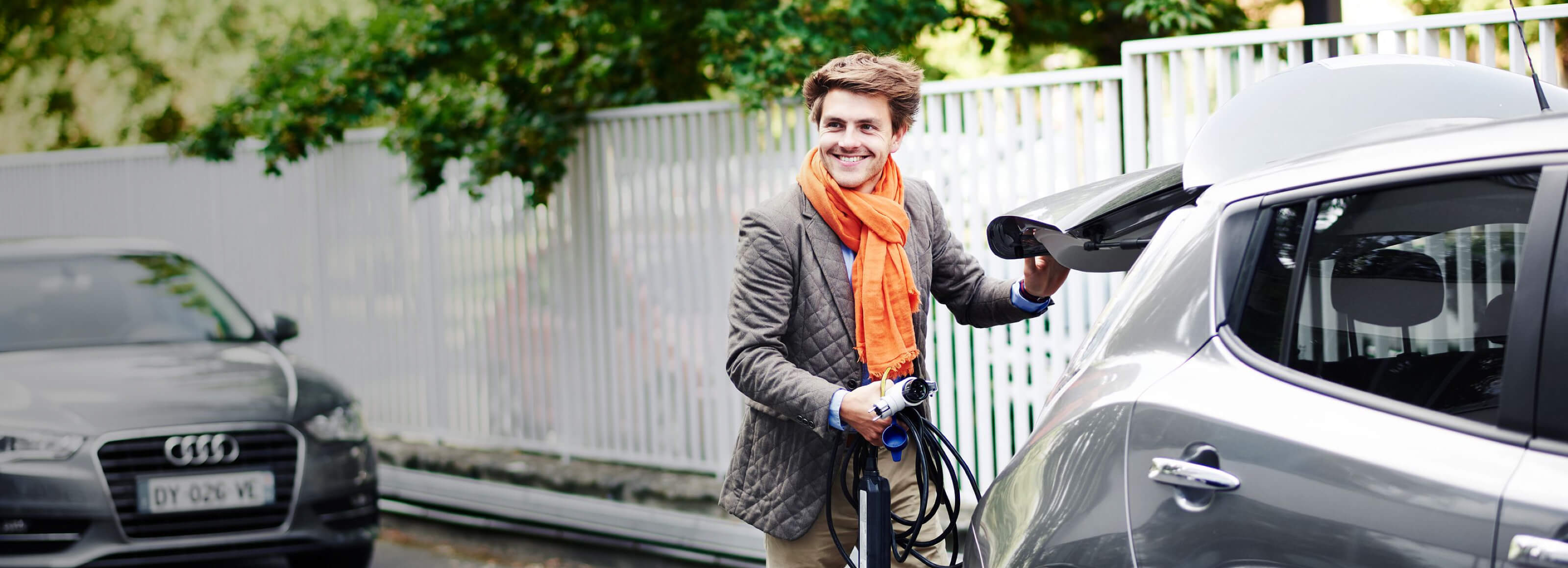
Hybrid or electric
What's the difference
It’s impossible to imagine a world without electric vehicles. And the good news is that there are many ways to drive an electric vehicle. But what is the difference between a hybrid, a plug-in hybrid and a fully electric vehicle?
A hybrid is powered by a combination of an electric motor and an internal combustion engine. It only uses the electric motor when accelerating and at speeds of up to 25 km/h, which makes it an ideal vehicle for cities. If the speed goes up, the internal combustion engine kicks in. The electric motor is charged every time you brake while driving.
Plug-in hybrid electric vehicles (PHEV) have an internal combustion engine and a battery, just like a hybrid. But in addition to charging the battery while you are driving, you mainly charge it by plugging it in at home or on the go. This gives plug-in hybrids a far greater range than parallel hybrids.
A battery electric vehicle (BEV) is powered by a large battery that is connected to at least one electric motor. There is no petrol, gas or diesel involved. Battery electric vehicles are becoming increasingly common and affordable thanks to rapid innovations by relatively new companies such as Tesla and established car manufacturers such as Audi, BMW, Mercedes, Volkswagen and Nissan.
What’s more, the charging infrastructure and technology is developing and improving all the time, while the charging network has grown exponentially in recent years in North America, Europe and China in particular.
Check out our EV deals
With lower costs, an influx of new makes and models, and waning range anxiety now that so many charging stations are springing up everywhere, it has never been easier or more attractive to go electric.



